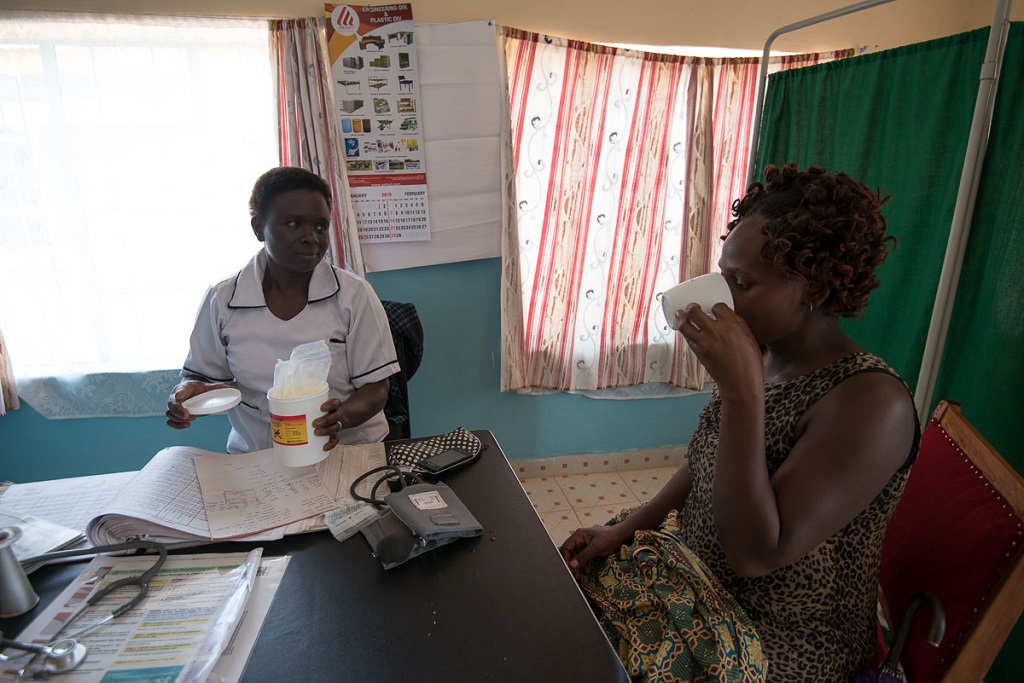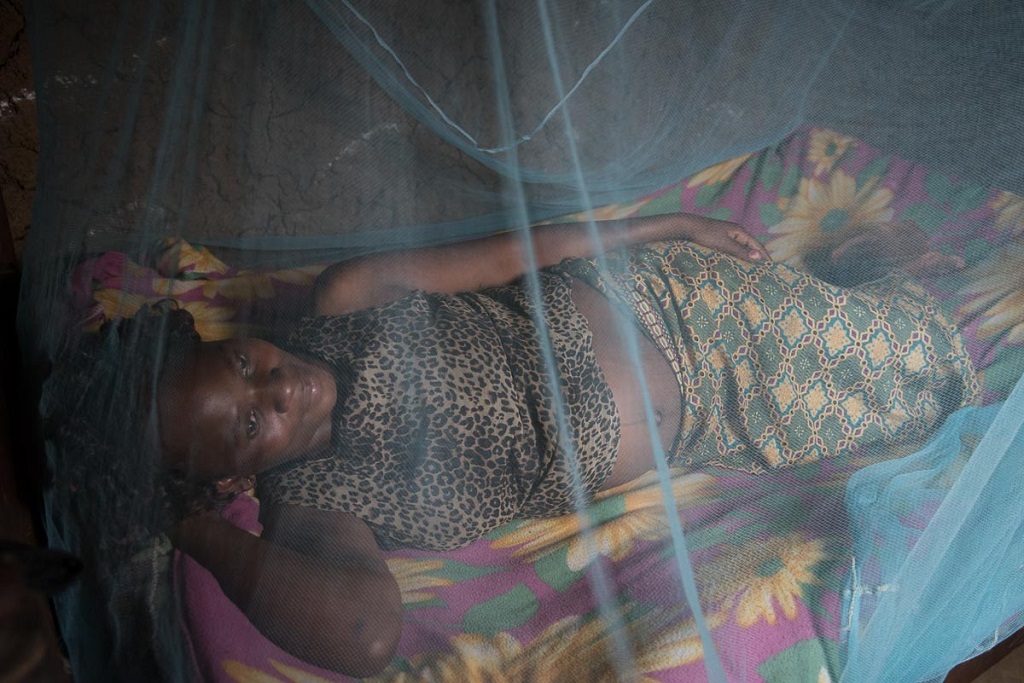This post originally appeared on USAID’s Impact blog.
When you think about mosquitos these days, one disease likely leaps to mind: Zika virus.
The media has been sounding the alarm for months, particularly Latin America, where health workers are on alert for pregnant women who may have become affected.
But another mosquito-borne disease kills a child every two minutes — and sickens hundreds of millions more, often over and over again: malaria.
In a rural health center in western Kenya, a 26-year-old woman waits her turn to see the nurse.
Christine Pepela began receiving prenatal care at the Mechimeru Health Centre in Bungoma County when she was four months pregnant.
It was here that she learned she is at risk for malaria — a far more deadly and prevalent mosquito-borne disease than Zika.
Now six months pregnant, Christine meets with Nurse Agnes Nambuya, who gives her an insecticide-treated bed net to sleep under and tells her about sulfadoxine-pyrimethamine, the medication she needs to help prevent malaria in pregnancy.
The risk of malaria faced by Christine and her baby is not new or unique.
In sub-Saharan Africa alone, 10,000 pregnant women will lose their lives to malaria this year, and about 200,000 babies born to mothers who have had just one episode of malaria in pregnancy will die.
In fact, malaria in pregnancy contributes to 8% of all stillbirths in the region. Many more babies will be born small or anemic, which can lead to life-threatening consequences, as well as health problems throughout childhood and beyond.
This is exceptionally unfair, as the adverse outcomes associated with malaria in pregnancy are largely preventable.
USAID’s flagship Maternal and Child Survival Program (MCSP), the President’s Malaria Initiative and other partners are increasing measures to dramatically reduce the number of cases of malaria.
Together, we’re supporting government health ministries to combat malaria in pregnancy through lifesaving and cost-effective tools:
- In 2014, we obtained 29 million sulfadoxine-pyrimethamine treatments needed for intermittent preventive treatment for pregnant women.
- Last year, about 900,000 pregnant women received two doses of this intermittent preventive treatment.

At the foundation of our efforts is ensuring access to high-quality, comprehensive prenatal care, which has proved effective in delivering critical care and counseling to both women and newborns.
It remains a key opportunity for trained health providers to deliver preventive treatment to pregnant women. Health providers can also recognize signs and symptoms of malaria, react swiftly, administer a rapid diagnostic test, and treat accordingly or refer to a higher-level facility.
With Zika virus cases mounting, prenatal care will be more critical than ever.
An estimated 94,000 newborn lives were saved through malaria in pregnancy interventions between 2009 and 2012.
As the world’s attention focuses on a newly emerging threat, we are reminded of the vulnerability of pregnant women to viruses and infections.
This underscores the importance of maternal and newborn health services to ensure all pregnant women receive the comprehensive counseling and care needed before, during and following pregnancy.
To learn more about MCSP’s global efforts to prevent and treat malaria, click here. And to add your voice to the global conversation, join us on Twitter!

